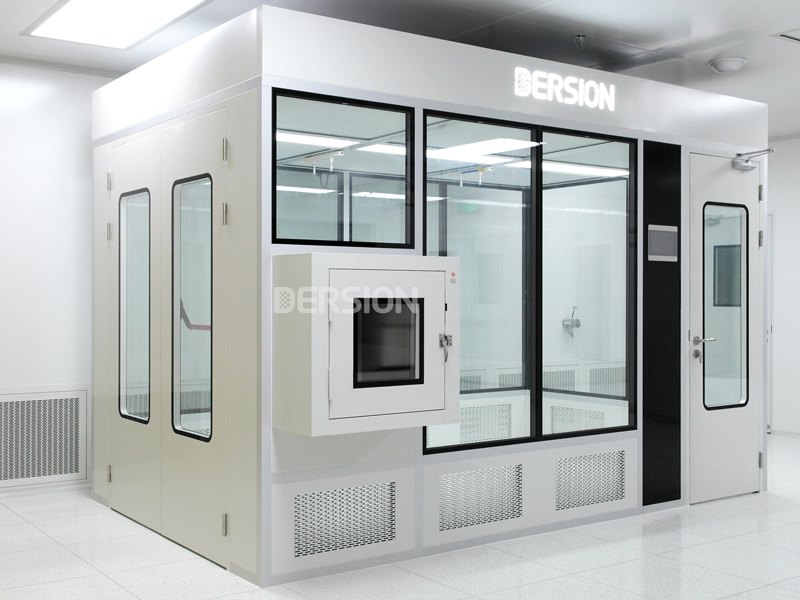Modular cleanrooms are prefabricated cleanroom systems designed for quick assembly, cost efficiency, and flexible adaptation. They use standardized components to meet various cleanliness levels (ISO 1–9), serving industries like semiconductors, biopharma, and laboratories.
1. Advanced Air Filtration & Airflow Control
Modular cleanrooms maintain air purity using HEPA/ULPA filters and fan filter units (FFUs) integrated into ceiling grids. Airflow forms a one-way circulation loop—top supply with bottom or side return—to consistently remove particles and ensure stable cleanliness.
2. Standardized Modular Structure
Unlike traditional cleanrooms built with welded steel structures, modular cleanrooms use prefabricated wall and ceiling panels, glass windows, and quick-install connectors. Each module is sealed with airtight strips to ensure a leak-proof, contaminant-free space.
3. Flexibility & Scalability
Every module is designed for future expansion or process adaptation. You can easily reserve spaces for new equipment, upgrade systems, or reconfigure layouts with minimal construction work. Smart systems—like particle counters, humidity/temp sensors, and touchscreen monitors—enable real-time environmental monitoring.
Why Modular Cleanrooms Are the Future
Modular cleanrooms reduce total lifecycle costs and improve deployment speed. They’re becoming the go-to infrastructure for clean environments in:
-
Semiconductor manufacturing
-
Biomedical research
-
University and R&D labs
-
Optical and aerospace industries
With fast installation, precision control, and modular scalability, these cleanrooms are essential for modern high-tech manufacturing.
Post time: Jun-12-2025

